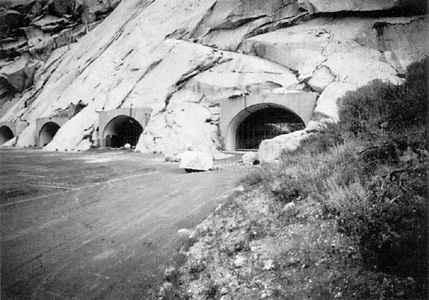In the documentary film “Nobody’s Business,” I was really surprised that the father, Oscar, was uninterested in his ancestry. I think ancestry is one of the most profound and complicated thing in our lives. There is so much history that with every new generation is lost. I met three of my great grandparents. My
I really appreciated that Alan tried to revisit his family’s past. Maybe this is a more recent phenomena, where people are seeking to have a connection with their past. In Oscar’s interview it didn’t sound like that was something the people of the times ever really talked about. Like Oscar said, “I’m just an ordinary guy, with an ordinary life.” For him, life was just life, and the memory of other ordinary people was redundant.

What I found most interesting in the film was Alan’s reference to the Vaults in the Salt Lake City mountains. I actually decided to do some research on them and find out what they were. Here are some links:
http://www.wired.com/wired/archive/7.07/mormons.htmlons.html
http://www.lig/htplanet.com/mormons/daily/family_history/granite_mountain_eom.htm
Although there is religious connotations to the purpose of the collection, I think this is an amazing opportunity for people to find out specifics about their past. The collection as Alan says holds birth, death and marriage certificates. It has immigration and other government documents all on microfilm available for viewing by the general public. My great grandfather on my dad’s dad side (where I get my Lewis name) was actually adopted and thus the last name would be his adoptive parent’s name. I find it fascinating and unfortunate tha
picture: My grandpa (Arseneault/mom's side) and me, he's 83!
Alan used a lot of symbolism in his film in different ways. One way was through sound. There was the constant clicking sound that was both distracting and annoying. I would interpret this as being representative of how Oscar viewed life. He knew time was passing, he watched his eleven siblings complete their lives and he was distracted by their deaths and reminded how little time he had left. I’m guessing this made enjoying life more difficult and the thought of the past just started to annoy him because it reminded him how little time he could spend with his great granddaughter. 
Alan also used visual symbolism to show his fathers frustration (the boxing match) with the questions being posed. I thought this was clever, but it also made light of how his father did feel.
To View Clips: http://www.alanberliner.com/flashdev3/viewing.html


